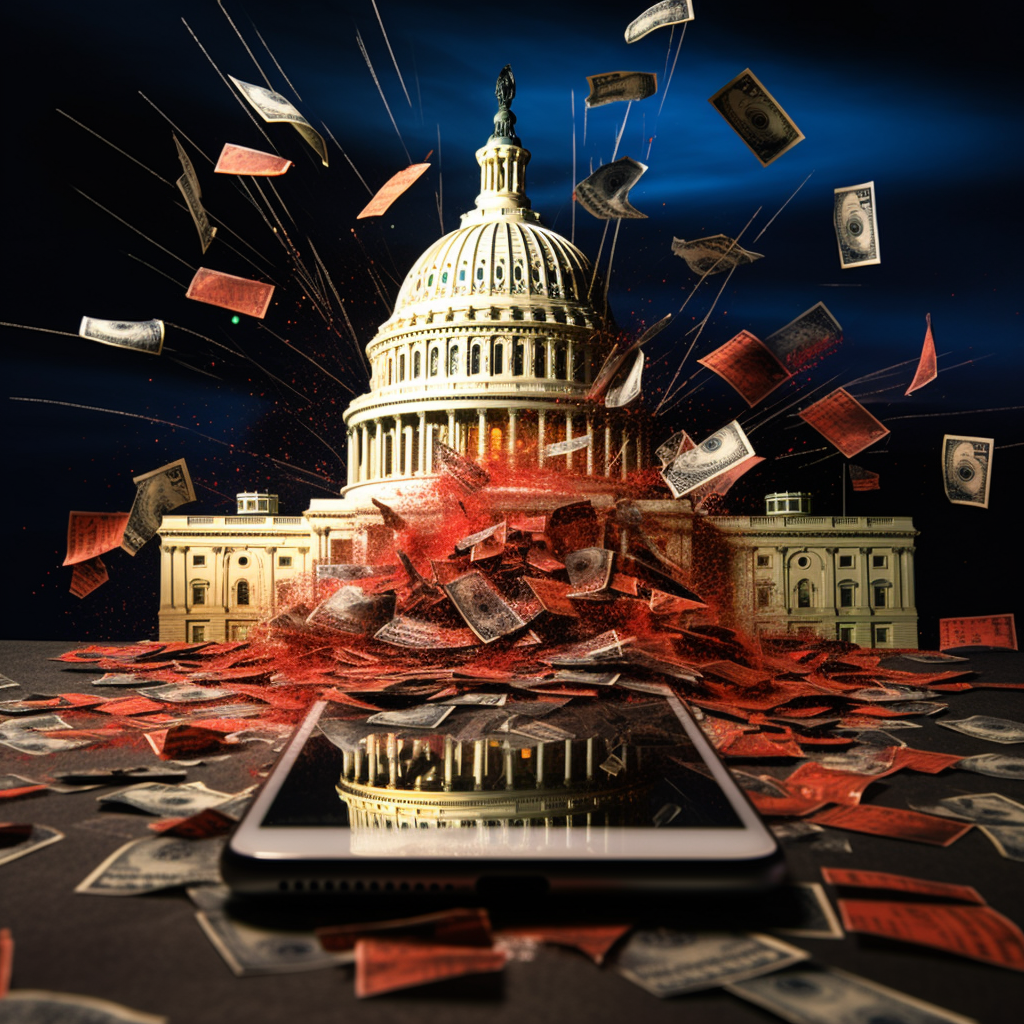
If there’s one theme emerging this year in Washington, D.C., it’s the full-on bipartisan rampage against American tech firms.
In a courthouse just blocks away from the Capitol, Google is defending its search engine against the Justice Department, while down the street the Federal Trade Commission is finalizing its case to break up Amazon. The DOJ is also reportedly probing Elon Musk’s company expenses at Tesla, laying the groundwork for an eventual case against the tech mogul.
Congress’ anger toward technology companies is red-hot and taking shape in the unlikeliest of forms — federal bankruptcy law reform.
Republican Takes on the Bankruptcy Reform
Last week in the Senate Judiciary Committee, a hearing was held on reforms to Chapter 11 bankruptcies, aimed at ending “corporate manipulation” of its statutes.
The discussion highlighted recent examples of companies undergoing multidistrict class-action lawsuits and their strategy of spinning off separate holding companies to more quickly and efficiently adjudicate claims in bankruptcy courts, rather than endure years-long jury trials.
It’s known as a “Texas Two-Step.”
It’s a model that plaintiff attorneys and Democrats generally deplore, a fact repeatedly made clear during the hearing, but one that has proven to render judgments quickly and with a better assessment of whether claims against large companies are legitimate. Most interestingly, comments by Republican senators indicate their party’s intent on using Chapter 11 to target what they perceive as the “harms” of Big Tech.
“In social media, there is no model like this,” stated Sen. Lindsey Graham. “We may not agree on how to resolve this issue, but if you’re harmed by social media, you have nothing. Zero. Zip. There’s where I hope the committee can come together and create rights of actions.”
Sen. Josh Hawley, who recently authored a book titled The Tyranny of Big Tech and has positioned himself as a chief antagonist of Silicon Valley, went one step further.
“If you wanna know why private rights of action are so darn important, and why we need to use them against the big tech companies, this is the reason why,” he said.
Tech Consumers Will Be Harmed
When Republicans invoke a “private right of action,” they’re talking about allowing consumers to individually sue any company for privacy violations or other “harms” yet defined.
While Hawley and Graham allude to a broad social media “harm,” independent researchers have yet to make any definitive case on what that means. Certainly not enough to mount a legal case.
Tech consumers who depend on these products and services could also soon bear the brunt of the regulatory and legal costs we see all too often in health care, banking, and food production, that of upwardly creeping prices and less innovation.
Everything would change for tech users, advertisers, and adjacent industries. Whether these services are free won’t matter once the free-for-all litigation can begin and lawyer-funded TV ads and billboards coax the next class of plaintiffs for attempts at billion-dollar settlements.
With the threat of more lawsuits — legitimate or not — comes higher costs for compliance and adjudication. When the target is a consumer-facing company with thousands of products and millions of buyers, these added costs are passed down to consumers.
At the same time, these cases overfill the docket alongside many real tort claimants who deserve justice, such as survivors of environmental catastrophes and victims of defective products.
Will Republicans Contract Lawsuit Fever?
Massive class-action lawsuits are the favored tool of legal firms because many companies would rather settle than subject themselves to lengthy litigation, which promises large payouts to the firms that organize the class and file the case.
Think of the corporate cases against Starbucks, a multi million-dollar suit over its fruit drinks not having “enough fruit,” or Burger King, with a class-action lawsuit over “false advertising,” alleging that hamburgers in TV ads are larger than when they’re served in the fast-food restaurants.
The U.S. is nominally the most highly litigious country in the world, so these examples should come as no surprise.
If Republicans also contract lawsuit fever, we’ll see a world with an explosion of mass tort class-action lawsuits filed against American technology companies, many of which would be without merit.
This would tie up resources for hundreds of innovative firms that consumers know and love and would place even more inflationary pressures on prices. Not to mention that it would pervert the true purpose of our judicial system — to deliver justice.
American citizens and consumers rely on a fair and virtuous legal system to protect our rights and ways of life. If anything, we should continue to demand that this be upheld.
Yaël Ossowski is a Canadian-American journalist and deputy director of the Consumer Choice Center.
Published in American Spectator (archive link).